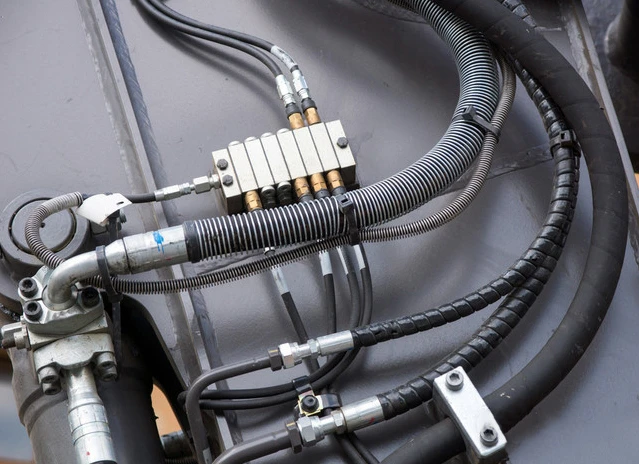Brake pipe hoses are a crucial component in any vehicle's braking system, serving as the conduit through which brake fluid travels from the master cylinder to the wheel cylinders or calipers. Their role is not only critical for vehicle performance but also for passenger safety, making their selection and maintenance paramount.
Understanding the nuances of brake pipe hoses aids in ensuring an optimally functioning braking system. These hoses are typically made from high-strength rubber, polymers, or stainless steel. Each material has its unique advantages and is suited to different vehicular needs. For instance, rubber hoses are generally more flexible and cost-effective, making them suitable for most passenger vehicles. On the other hand, stainless steel hoses can withstand higher pressures and temperatures, often favored in high-performance or racing applications due to their durability and increased braking response.
A major point to consider in brake pipe hose selection is their compatibility with the brake fluid used in the vehicle. Brake fluids, commonly glycol-based or silicone-based, have specific chemical compositions that can react differently with various hose materials. A hose that does not properly match with the used brake fluid can lead to degradation over time, potentially resulting in leaks or brake failures. Therefore, consulting the vehicle's manufacturer guidelines or seeking advice from a certified mechanic ensures the chosen hoses are chemically compatible with the brake fluid.
In terms of maintenance, regular inspections are essential. Brake pipe hoses are prone to wear and tear due to constant exposure to heat, pressure, and environmental conditions. Over time, rubber hoses may develop cracks or become brittle, while metal hoses might corrode. Conducting visual inspections for any signs of damage like bulging, cracking, or leaks at least once a year can prevent sudden failures. Moreover, during these inspections, ensure that the hoses are properly attached, the fittings are tight, and there are no obstructions or kinks in the line that could impede fluid flow.
In addition to visual inspection, functional testing of the braking system is vital. A spongy brake pedal could indicate a problem with the brake hose or fluid. This condition might be due to air trapped in the brake hose or a degradation of the hose material itself. Performing brake fluid flushes as per the manufacturer's recommendations can help mitigate such issues, keeping the system in top operational condition.brake pipe hose
Replacing brake pipe hoses is a task best left to professionals unless one has specific mechanical expertise. Proper replacement requires bleeding the brake system to remove air bubbles, ensuring the new hose installation is leak-proof, and confirming that all connections are secure. Additionally, it involves disposing of old brake fluid in an environmentally responsible manner, adhering to local regulations.
It’s noteworthy that innovation in brake hose technology continues to evolve, driven by advancements in materials and vehicle dynamics. The advent of synthetic rubber compounds and reinforcement technologies promise even greater resilience and lifespan for these components. Staying informed about the latest developments allows vehicle owners and mechanics to make the best choices regarding brake hose replacements.
Finally, building relationships with reputable manufacturers or suppliers of brake pipe hoses can offer assurance of quality and reliability. Brands that adhere to international standards and possess certifications from recognized quality-assurance bodies typically provide products that meet high safety and performance standards. This not only instills confidence in the product but also enhances the vehicle's safety profile.
In summary, the importance of brake pipe hoses in a vehicle's braking system cannot be overstated. Through proper selection, routine maintenance, and keeping abreast of technological developments, drivers can ensure their safety while maximizing the efficiency and longevity of their vehicle's braking system. Remember, when it comes to vehicle safety components like brake pipe hoses, never compromise on quality or integrity.
OUR LATEST NEWS
Strict quality control strict production team to ensure stable products quality. Scientific personnel management, efficient production arrangements to ensure our timely delivery.























